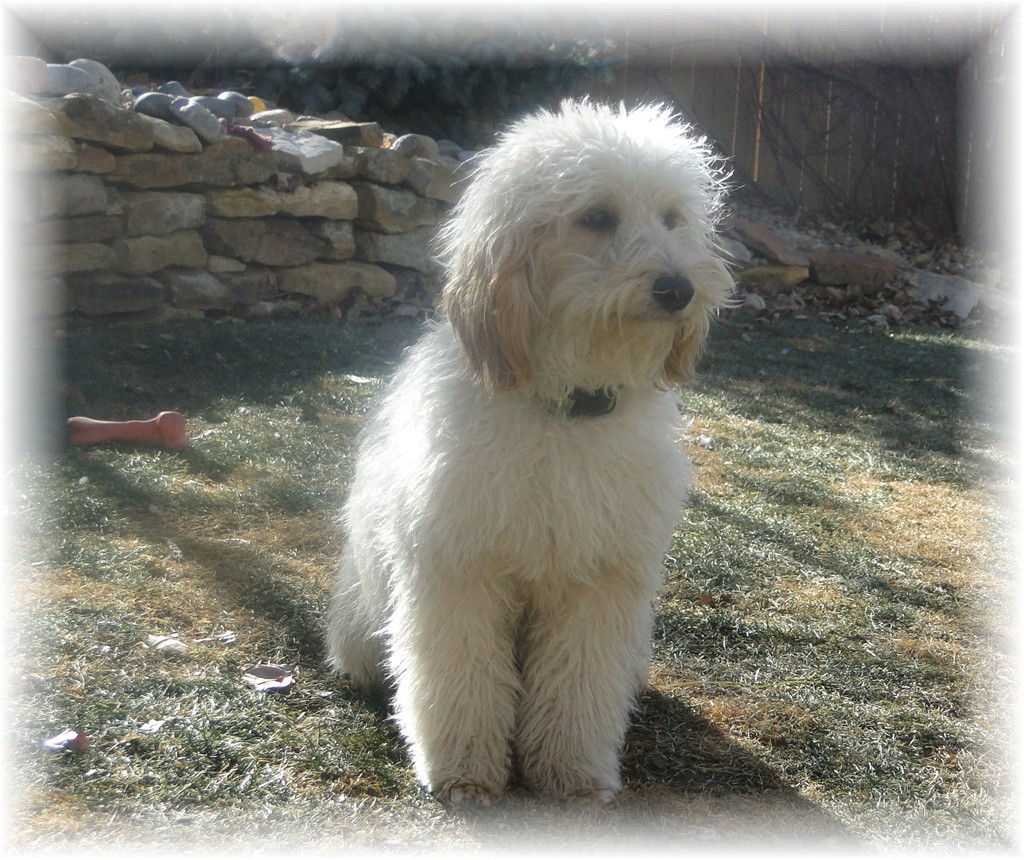The arrival of a new puppy is an exciting time – everything from picking out names to finding just the right squeaky toy is fun and different. And you probably jumped right into showering your dog with affection and treats. However, there is one thing that you might be putting off for later: teaching your cobberdog good manners.
Teaching a puppy to behave is not as much fun as cuddling together on the couch or playing fetch. Still, it is an essential part of being a pet owner. Establish your expectations from the beginning, and your puppy will grow up respecting you as the leader of the pack.
Why Cobberdogs Need Good Manners
Dogs recognize that packs have leaders. By teaching your cobberdog how to behave, you are establishing yourself as the leader of the pack. On the other hand, when dogs are allowed to behave however they please, they will start to think of themselves as the pack leaders. When that happens, your cobberdog will no longer respect your authority and will not listen to your commands unless he wants to.
Cobberdogs are a fun-loving and incredibly intelligent breed. In just a few weeks, with some effort, you will find that your puppy is learning how to behave properly. As long as you continue reinforcing behavior consistently, your puppy will continue meeting your expectations.
How to Teach Cobberdogs Good Manners
Good manners need to be taught from the very first day. Once your dog knows exactly what behavior is allowed, he will start wanting to please you. But if you wait too long and let your dog develop bad manners, those unwanted habits will be much harder to break.
Reward Positive Behavior
Cobberdogs, like most dogs, thrive on attention and affection. The best way to reinforce positive behavior you want is to lavish praise and even offer treats. Your puppy will soon learn that this is how to please you, and will continue exhibiting that behavior. There are some additional tools you can use to reinforce good behavior, such as the clicker. Clicker training is simple. When you get your puppy to do the behavior you want (eg. go potty on the trail, not on the grass), you give your clicker one or two clicks and immediately hand your puppy the treat. Don’t wait too long as you need to tie the reward to the sound of the click to make this work.
Ignore Negative Behavior
On the other hand, the best way to discourage bad manners is to ignore them completely. Remember, what your cobberdog wants the most is your attention. If you refuse to reward bad behavior with attention, your puppy will soon find other, more positive ways, to get your attention. Some other tips: do not let your dog jump on you; if you do they will jump on everyone they meet which is off putting to many. To prevent this, from the very first time they jump on you use a gentle knee to block them, and they will stop jumping on you. Another behavior to correct is “nipping”. All puppies nip, and will continue to if not stopped. To stop nipping, again from the first nip you yell out very loudly “Owwww”. It must be loud enough to startle them, and if you do that the first few times they nip, they will stop.
Do NOT ever hit, kick or otherwise get physical with a puppy that is showing negative behavior! Reinforcing positive behavior and deterring negative behavior MUST always be done through the types of training mentioned above.
Use Consistent Language
Always use the same words to get the same result. Simple commands such as sit, stay, and wait are most effective. Make sure that everyone in the house is using the same words, so as to avoid confusing your cobberdog.
Warning Signs of Bad Manners
These are all warning signs that your cobberdog needs to learn better manners.
- Jumping on people
- Climbing on furniture
- Pulling on the leash
- Begging for food
Professional Training is a MUST when you bring your puppy home: In addition to all that is stated above, you MUST start your new puppy in a Professional Obedience Training program as soon as 1 week after your puppy gets home. There are 3 or 4 week classes at most Petco and Petsmart centers that are very reasonable. Also, if you or your family have small children or grandchildren that visit, it is imperative that they are fully supervised with the new puppy for the first few weeks at least and it is highly recommended that they go with you to the training classes if possible. Oftentimes, young children and even teens can sometimes in their exuberance around a puppy be “too much” for the puppy and this can cause negative behaviors.
No matter how consistent you are, there will be times when your cobberdog misbehaves. Practice kindness and consistency to keep those occurrences to a minimum.
Teaching a dog how to behave can be a positive experience, but it does require time, effort, and most of all consistency. Focus on rewarding good behavior and you will only deepen the bond between you and your Cobberdog.
If you’re interested in more information about our cobberdogs then please Contact us for more information. Have a great day!


